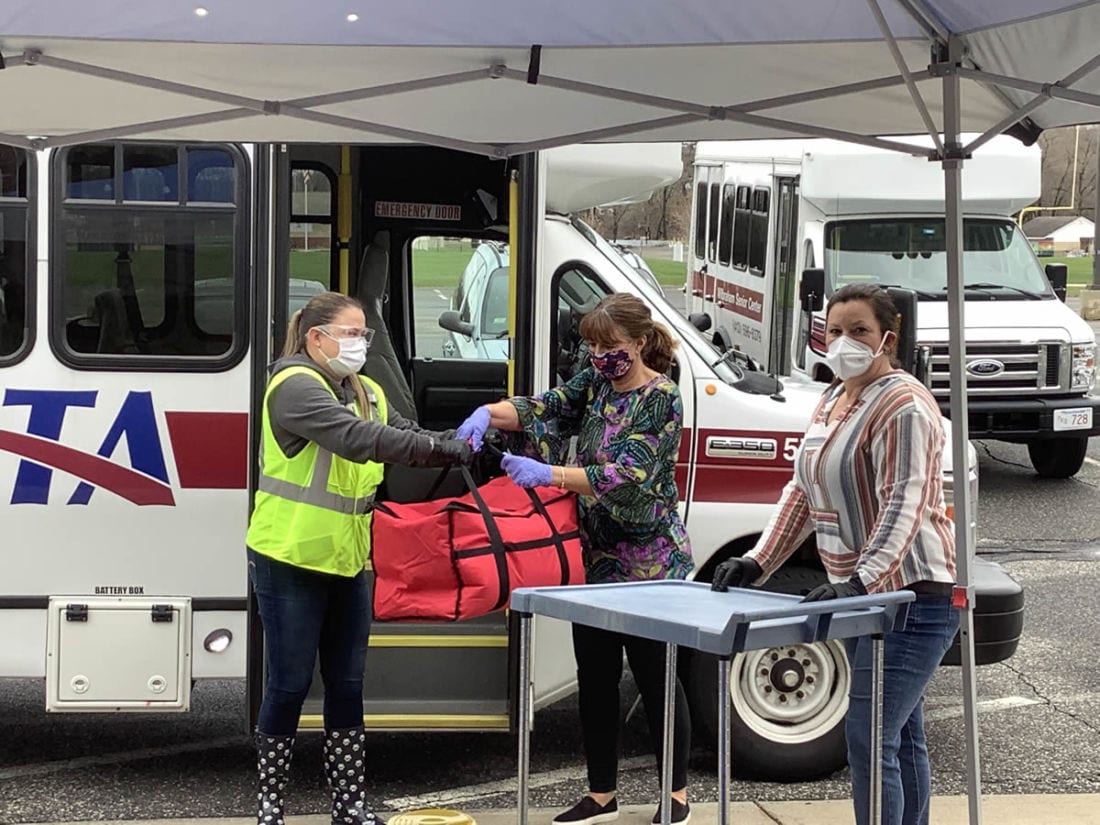July 8, 2020 Community Stories
During Crisis, Meal Deliveries Comfort Older People and Their Caregivers
“It was such a relief to have a funder reach out and say, how are you doing? What do you need?” said Jill Keough, executive director of Greater Springfield Senior Services (GSSSI).
Keough was reflecting on a call from the Community Foundation of Western Massachusetts back in March, when the COVID-19 pandemic forced elders, among the most vulnerable to the virus, to stay at home. Since keeping older adults healthy, independent, and socially connected at home is GSSSI’s core mission, its work took on new meaning and its staff adopted new methods.
Serving Greater Springfield since 1972, the agency offers case management, meals, caregiver support, health and wellness programs and much more. With its congregate meals closed, Keough recognized that GSSSI’s clients would miss out on nutrition and much-needed social contact. And pressure on caregivers, whether family members or home health aides, would intensify.
With a grant from the COVID-19 Response Fund for the Pioneer Valley, GSSSI ramped up its meal delivery program to reduce its clients’ isolation and protect and support caregivers. GSSSI typically delivered 1,200 meals per week. When congregate meals ended at the agency and throughout the region, meal delivery requests to GSSSI climbed to 4,000 weekly.
It developed new partnerships in order to deliver more meals—from the Martin Luther King Jr. Community Center to several Councils on Aging—and delivered extras with the meals on TP Tuesday and Sanitizer Friday. A collaboration with the Pioneer Valley Transit Authority enabled GSSSI to keep its travel costs down. And GSSSI sourced food from hard-hit local food businesses, like Elegant Affair and Rachel’s Foods.
“The community connections have been great,” says Keough. “I think we’re on to something special. We’ve been forced out of our comfort zones, and this could provide some models for the future.”
With the meal deliveries come brief but meaningful bits of socializing and check-ins─ from a distance. The contacts benefit clients and caretakers. Keough says, “One of the nicest surprises is the impact our programs have had on caregivers: alleviating their stress and giving them one less thing to worry about. They get a meal, too.” Masks and gloves are also provided for caregivers and clients.

GSSSI has continued its client assessments via videoconferencing and lots of good old-fashioned phone calls. Staff and volunteers make 8,000 weekly check-in calls to clients. “We flag folks who really want to stay on the phone and talk,” says Keough. Volunteers make additional weekly calls to those clients.
“We’re extremely appreciative to the Response Fund,” says Keough. “It has allowed us to serve older people and their caregivers in ways we wouldn’t be able to do before.”